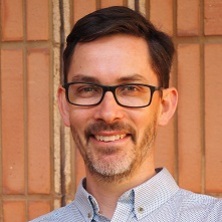Identification of the molecular hallmarks of naevi progressing to melanoma (2016-2019)
Abstract
Melanoma is the fourth most common cancer with >11,000 Australians diagnosed each year resulting in >1500 deaths, and as such, the burden of disease is high. Stage IV melanoma patients (ranked 0-IV) have the poorest prognosis (5-year survival of <15%) but if the melanoma is detected in its early stages (in-situ) and removed through curative surgery, the 5-year survival is one of highest of all cancers (~98%). Therefore, to reduce the burden of melanoma in our community, it is paramount that the disease is detected early. Studies have consistently shown that the number of naevi (benign neoplasms of the skin) is the strongest predictor of risk for melanoma. Indeed, many melanomas grow adjacent to or within pre-existing naevi. Moreover, new naevi can form and existing ones change regularly. This proposed research is therefore needed as naevi are both the strongest predictor of melanoma risk and, separately, potentially precursor lesions of melanoma. The project will address the hypothesis: A `melanoma-specific¿ molecular signature can be used to characterise naevi that are progressing to melanoma. Indeed the central aim of this proposal is to comprehensively assess of the molecular hallmarks of growing and involuting naevi, using next-generation sequencing and high-throughput methodologies. This project will identify novel molecular hallmarks of naevi progressing to melanoma in the form of somatic mutations, unique copy number alterations and gene expression signatures. All of which will be combined to assist in the improvement of the understanding of naevus development and transformation- the key to understanding melanoma development. It is envisaged that these molecular hallmarks will enable more efficient early detection of this common malignancy leading to decreased chances of distal spreading of melanomas. Understanding these mechanisms will help to improve the significant burden of disease not only to the patient, but also to the healthc...

